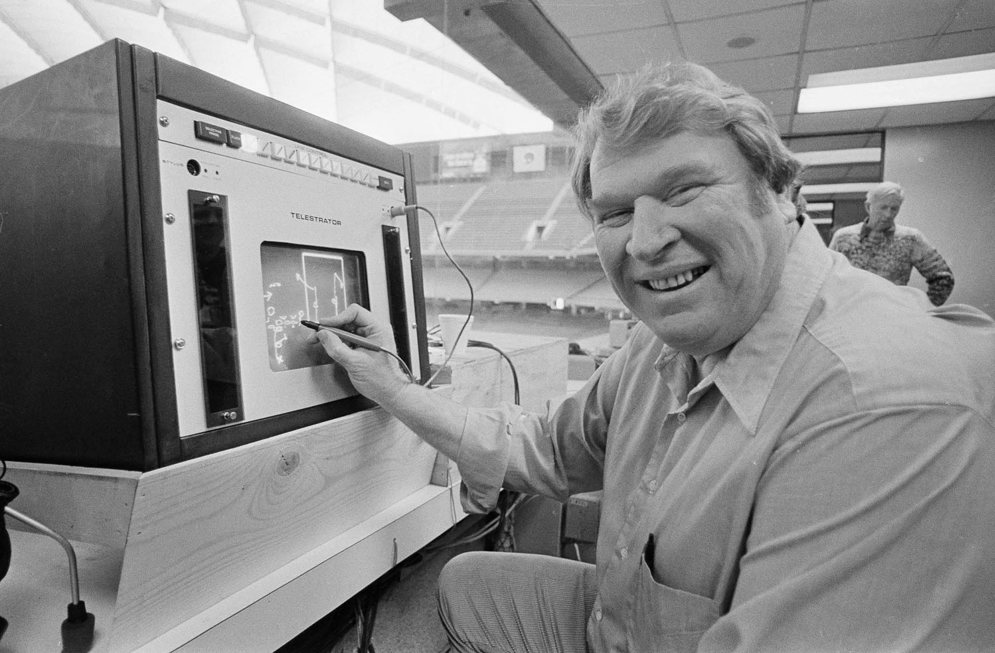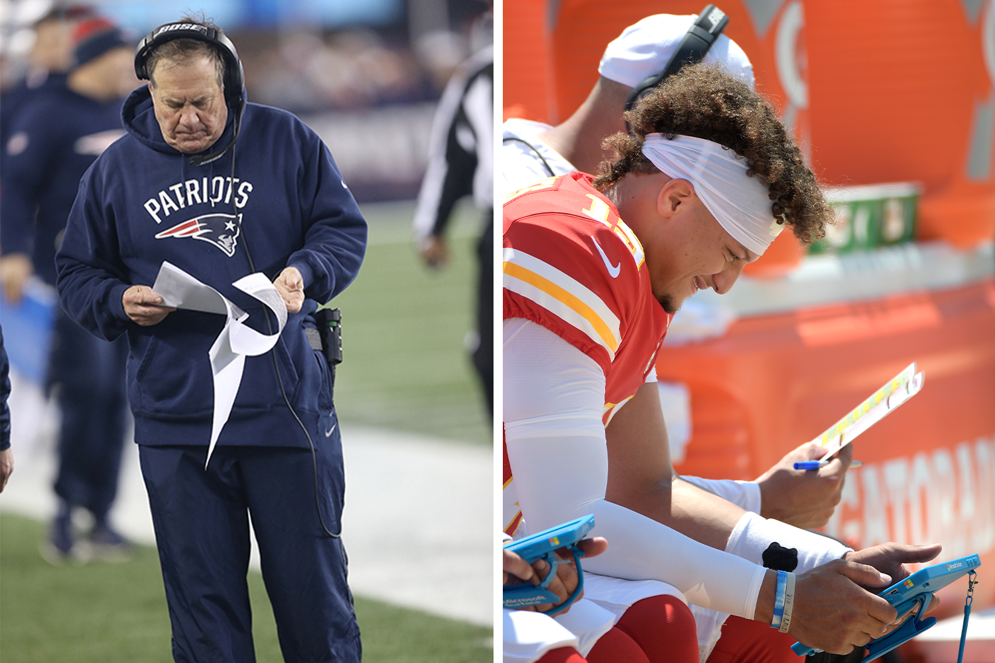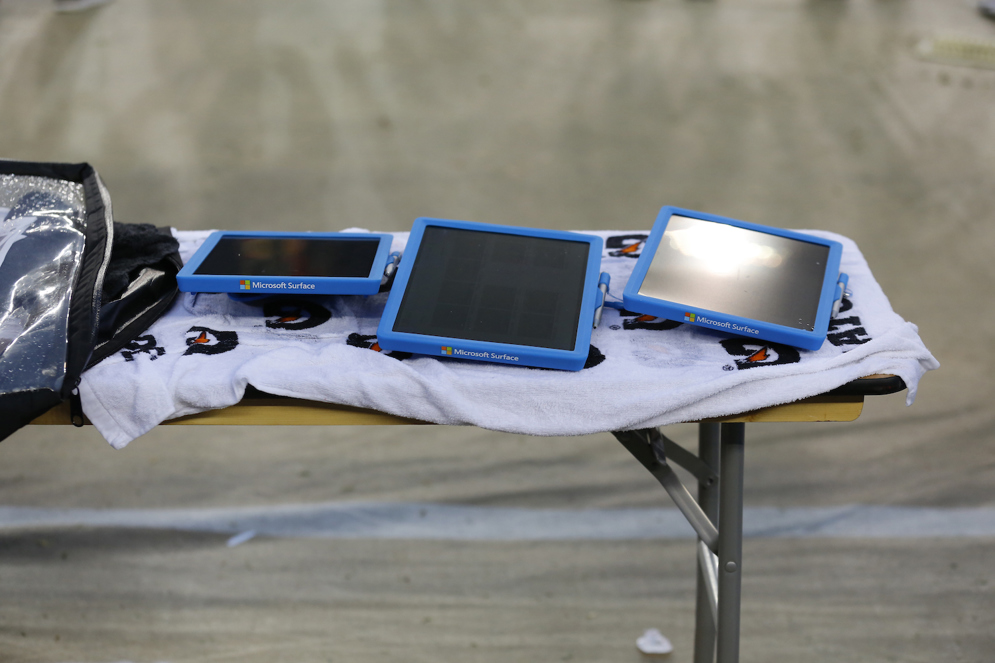Sideline of the Future
The NFL and Microsoft partner to offer a new view of the game.
The NFL and Microsoft partner to offer a new view of the game.

Former Oakland Raiders head coach and television commentator John Madden practices using the electronic charting device 'Telestrator' that was used to illustrate plays during Super Bowl XVI at the Silverdome in Pontiac, Mich. (AP Photo/File)
NFL fans are used to seeing players and coaches huddled on the sidelines, strategizing over depictions of their opponents’ formations and tendencies. This scene raised a fairly obvious question: How can a high-tech league still rely on black-and-white printouts?
The simple answer: The league hadn’t yet found a system that met its rigid standards.
The NFL’s partnership with Microsoft does that — and more. Already, it has helped teams improve player safety and has enhanced the home-viewing experience.
The league is moving away from the days when a printer behind a team’s bench spit out black-and-white snapshots, transmitted via fiber optic cables and quickly assembled in binders by team “runners” for coaches and players to view.
Starting in the 2014 season, all teams have sideline access to league-provided, specially configured Microsoft Surface tablets, on which they receive high-resolution color images almost instantaneously.

The Sideline Viewing System available on Microsoft Surface tablets offers coaches immediate and dynamic options for analyzing their opponents’ strategy and formations during a game. For now, teams can still use photo printouts in binders. (AP Photo/Paul Jasienski) (AP Photo/Phelan M. Ebenhack)
The Sideline Viewing System app lets coaches zoom in, make annotations, review plays and tag 'favorites' for later review. As with the old system — but in a more immediate, flexible and efficient way — teams use the information to adjust play-calling and instruct their players as the game unfolds.
Teams still can use the printouts if they prefer. But with the app, coaches can more easily look at plays from earlier in the game. And they get access to the photo at least 30 seconds faster, which can prove invaluable for making adjustments on the fly.

A trio of Microsoft Surface tablets are seen on a sideline during an NFL football game. (AP Photo/Ryan Kang)
The league takes technological changes very seriously. Any change must improve the game and work reliably, and it cannot favor one team over another. With these demands in mind, Microsoft worked closely with the NFL and its Competition Committee to make sure that the Surface was up to the task.
Microsoft customized off-the-shelf Surface tablets to meet the league’s demands: They had to withstand heat, cold, rain and glare, so they were rigorously tested and modified until fit for game action. (For example, each has an attached stylus so staff and players wearing gloves during cold weather can use the device.)
Above all else, the tablets needed to be ready for both teams at a moment’s notice. They had to be able to stand up to the occasional drop, hold a charge through an entire game and flawlessly connect to the stadium’s network through which data is transmitted.
The tablets are identically configured; teams cannot access the Internet or install any app or feature that might give them a competitive edge. The league locks the tablets away until just before kickoff and collects them as soon as the game ends.
Microsoft Surface tablets also are helping trainers diagnose and treat injured players.
For players with a possible head injury, medical staff can use X2 Biosystems’ concussion assessment app — which compares how a player answers a specific set of questions before and after a possible head injury — to determine whether a player should be allowed to return to the game. While not the sole factor in that decision-making process, the X2 test is a vital component.
Trainers also use the Surface tablets to keep other important player medical information at their fingertips. For road games, the devices allow information from players’ electronic medical records to be available on the sidelines during play.